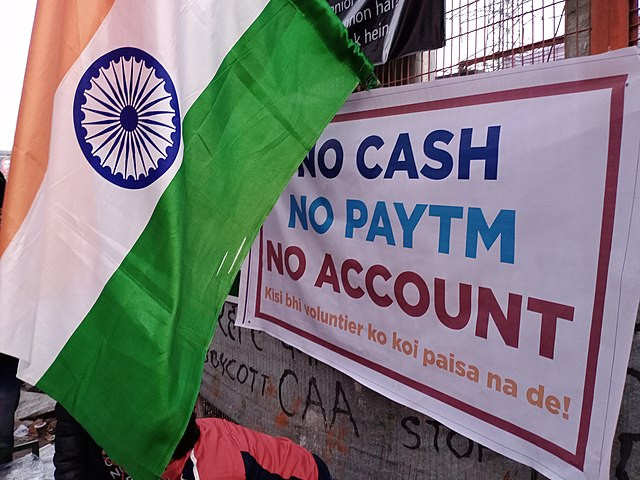Paytm, one of India's leading digital payment providers, has hit a regulatory roadblock with the Indian government deferring approval for a significant investment into its Paytm Payment Services arm. The proposed Rs 50 crore ($6 million) infusion, already made by the parent company One 97 Communications, has been put on hold, sparking a complex situation due to the political sensitivities surrounding Chinese investments in India.
The investment delay comes amid broader scrutiny of Paytm by India's financial regulators. Following a directive from the Reserve Bank of India (RBI) in January, which instructed Paytm to wind down its payments bank, the company has faced increased examination from both the banking regulator and the country's financial crime-fighting agency.
A key point of contention in the approval process has been the involvement of China-based Antfin (Netherlands) Holdings, which holds a 9.88% stake in Paytm. Despite receiving initial approval from the Ministry of Home Affairs in January, the investment was stalled when the foreign ministry cited "political grounds" for its rejection, as noted by government officials and a document reviewed by Reuters. This decision reflects ongoing tensions and the stringent oversight of Chinese investments in India, especially in sectors deemed sensitive for national security.
Government panels, comprising representatives from the ministries of home affairs, finance, and industries, along with inputs from the foreign office, are involved in the approval process. The complexity of this process underscores the challenges foreign investments face in navigating the geopolitical landscape.
The potential implications for Paytm are significant. The Paytm Payment Services arm accounted for a quarter of the company's consolidated revenue from operations in the fiscal year 2022/23. The necessity for a payment aggregator license, critical for the company to accept online payments legally, hinges on the approval of this investment.
If the government ultimately withholds approval, Paytm would be compelled to withdraw the already invested funds from the Paytm Payment Services entity, a move that could disrupt its operations significantly. Currently, it remains unclear whether this deferment will affect Paytm Payment Services' ability to continue offering online payment services.
Paytm has publicly responded to the situation, stating that they have not received any official communication regarding the deferment or potential penalties. "We have received no communication that the investment proposal has been deferred or that a penalty is proposed to be imposed," a company spokesperson told Reuters. "In the absence of any such information, any notion of the proposal being deferred due to lack of clarity on Chinese holding and a penalty on Paytm is entirely false and misleading," they added.
The situation leaves many questions unanswered, particularly regarding the duration of the deferment and the specific conditions required for obtaining final approval. The ongoing uncertainty not only impacts Paytm's strategic initiatives but also highlights the broader implications of geopolitical tensions on the tech and financial sectors in India.






